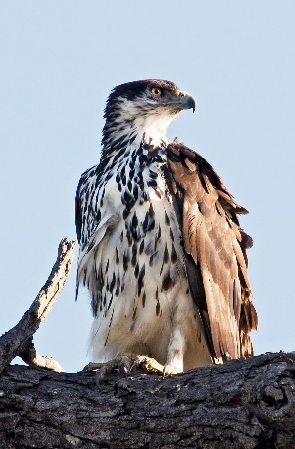The African hawk-eagle is powerfully built and hunts small to medium-sized mammals and birds predominantly, occasionally taking reptiles and other prey as well.
In Ghana and Africa at large, rural children especially when school is on recess, do go into adventures such as bird trapping.
Birds caught could be just for fun, to keep as pets, or for meat regardless of their size.
Against this backdrop, children in and around the Silbele community do trappings of African Hawk Eagle beds for their meat.
They are ignorant of international laws protecting endangered wild animal species such as African Hawk Eagle. The laws prohibit their catch and sale or other harms except under permissible protection by state authorities in one's country.
As a birder, I once chanced on these kids in one of their trapping expeditions at the Silbele Dam and took them through the consequences of what they do with the birds.
Though their one could not cease to be amazed by their unique skills of training that enable them to catch more than 100 African Hawk Eagles in about 5 hours duration.
They often use toads as bait to attract flying birds from the skies.
In an attempt to feed on the toad, luck sometimes eludes the birds, and hence they are caught by the traps laced with nylons.
I went the extra length of paying for the release of all birds caught and still alive. Some were already slaughtered and hence dead.
I had a meeting with the Dam committee in the Silbele community to help stop the disturbances of all birds sighted around the dam.
I can authoritatively say after years of experience around the dam that, apart from the Gbele Resources Reserve, silbele Dam is the next hub for bird watching birding in the whole of the Northern part of Ghana.
In one evening, not less than 7 different species of birds could be sighted around.
Opinions of Wednesday, 4 January 2023
Columnist: Araphat Dimah















